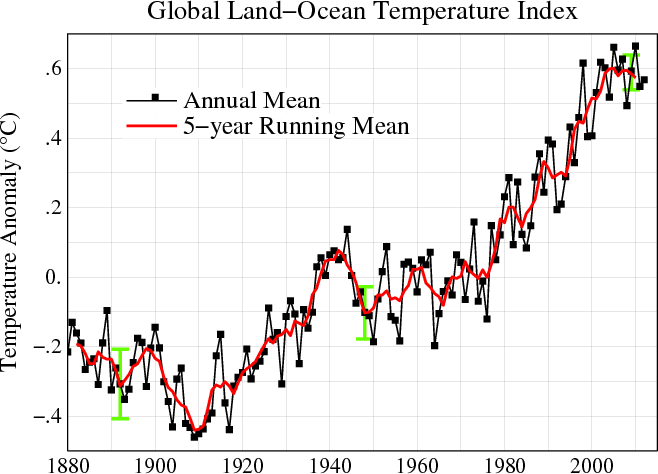Wolfbeckett
Jerkin' and nonsense.
- Joined
- Apr 27, 2011
- Messages
- 2,682
The real problem I see, is even if AGW is real, how much do we actually HAVE to do in order to fix it? What is the minimum amount that will be effective instead of just us spinning our wheels? How much will that minimum cost, and what are the potential damages if we don't? I'd like to see a real plan complete with cost/benefit analysis, otherwise there's no way of knowing whether we can do anything or if it's too late and if it's even worth doing in the first place.
Just because this is one of the more recent and therefore scary threats doesn't mean it's immune to cost/benefit analysis. Anytime I ask hardcore AGWers about what they want to do about it, all I get are completely unrealistic pie-in-the-sky fantasies about cheap green energies that are miraculously efficient enough to provide all the energy we need, despite the fact that such techs don't exist in reality at this point (aside from maybe nuclear, but don't dare suggest that, it's DANGEROUS!!!). So really, show me the numbers. Show me a way we can fix it without bankrupting our society or relying on technologies that don't exist yet and may never exist.
I wouldn't call myself precisely a skeptic on AGW, I think it's possible that we do have some influence (though exactly how much I am still very much on the fence about), but even if it exists, what is the plan?
Just because this is one of the more recent and therefore scary threats doesn't mean it's immune to cost/benefit analysis. Anytime I ask hardcore AGWers about what they want to do about it, all I get are completely unrealistic pie-in-the-sky fantasies about cheap green energies that are miraculously efficient enough to provide all the energy we need, despite the fact that such techs don't exist in reality at this point (aside from maybe nuclear, but don't dare suggest that, it's DANGEROUS!!!). So really, show me the numbers. Show me a way we can fix it without bankrupting our society or relying on technologies that don't exist yet and may never exist.
I wouldn't call myself precisely a skeptic on AGW, I think it's possible that we do have some influence (though exactly how much I am still very much on the fence about), but even if it exists, what is the plan?


